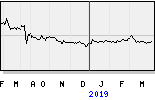
Pharming Group N.V. (Euronext: PHARM, PHAR.AS) ("Pharming" or "the Company") announced today that Health Canada has approved the Company’s Clinical Trial Application ("CTA") for recombinant human C1 inhibitor ("rhC1INH"). The Company has expanded the clinical development of rhC1INH for the treatment of hereditary angioedema ("HAE") to Canada.
Pharming will assess the safety and efficacy of rhC1INH to treat acute attacks of hereditary angioedema in clinical trials. The protocol involves a randomized, double blind, placebo controlled trial for rhC1INH in HAE patients and will be conducted at multiple centers across Canada.
"We are excited to receive approval from Health Canada on the CTA for rhC1INH and expand our clinical trials to Canada," said Dr. Francis Pinto, CEO of Pharming. "We are grateful for the support of the Canadian Hereditary Angioedema Society (CHAES) and look forward to providing rhC1INH to HAE patients through clinical trials in Canada as well as the United States."
Pharming is currently conducting a randomized, double blind, placebo controlled Phase III clinical trial for rhC1INH across Europe. Under an IND granted by the US Food and Drug Administration ("FDA"), the Company has also expanded clinical studies with rhC1INH to the United States.
In clinical studies, HAE patients treated with rhC1INH show a significant decrease in time to beginning of relief and time to complete resolution with no adverse effects reported to date. The Company expects to file for approval of rhC1INH with the European Agency for the Evaluation of Medical Products ("EMEA") in 2005.
Background on Hereditary Angioedema
Hereditary Angioedema ("HAE") is a genetic disorder caused by a deficiency of the human C1 inhibitor protein. The disease is characterized by acute attacks of swelling of soft tissues (edema), including regions of the skin, the intestine, and the mouth and throat. If the soft tissue of the throat is involved, an attack of angioedema can be fatal. In addition to the life-threatening nature of the disease, quality of life for individuals with the disease may be seriously impaired.
In the West, approximately 1 in 30,000 individuals suffer from HAE and have an average of 7 acute attacks per year. HAE attacks that are untreated typically last up to 5 days. Current treatment of HAE consists of prophylaxis and management of acute attacks. Attacks of angioedema can be effectively treated with intravenous administration of C1 inhibitor purified from human blood. However, C1 inhibitor preparations obtained from human blood have only been approved for use in some European countries. Although blood derived product has been shown to be effective for HAE, treatment with such plasma-derived preparations has potential drawbacks in terms of safety and product supply.
